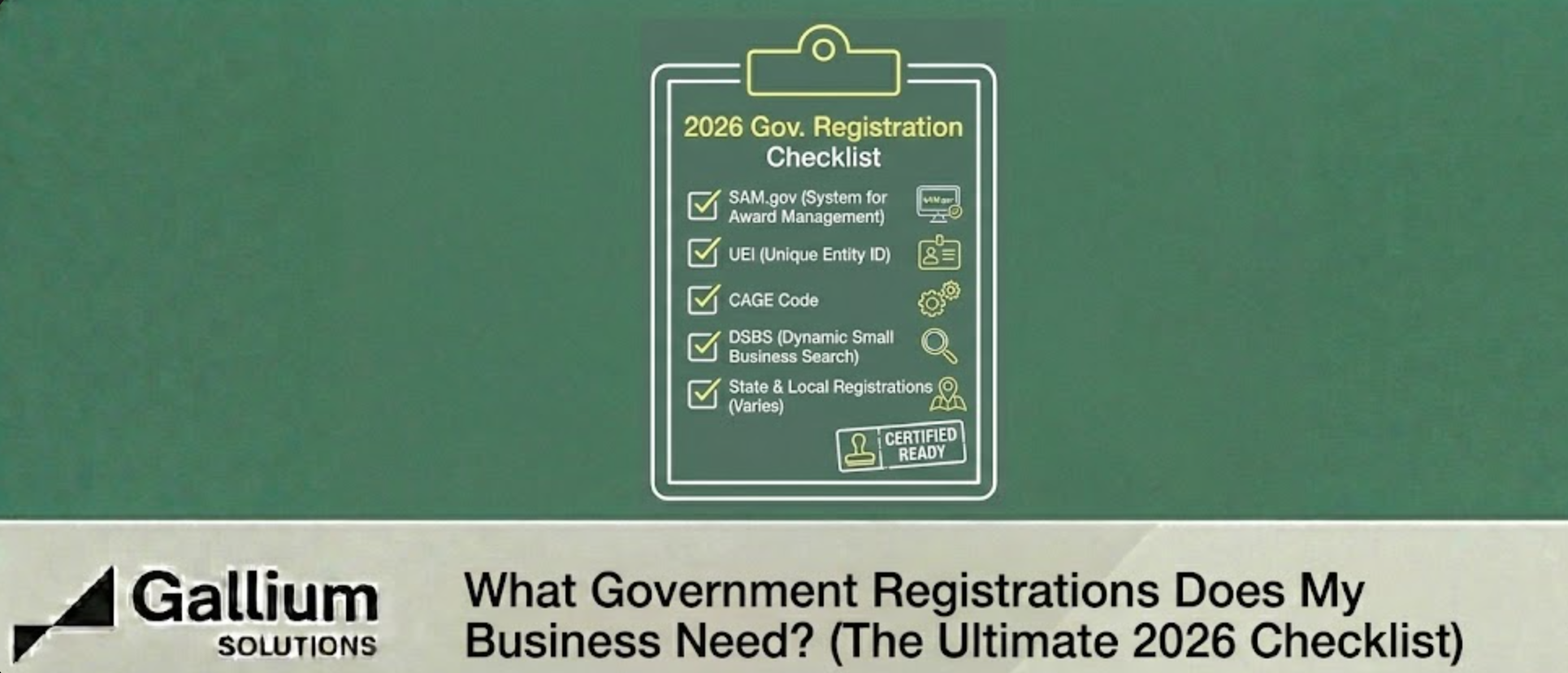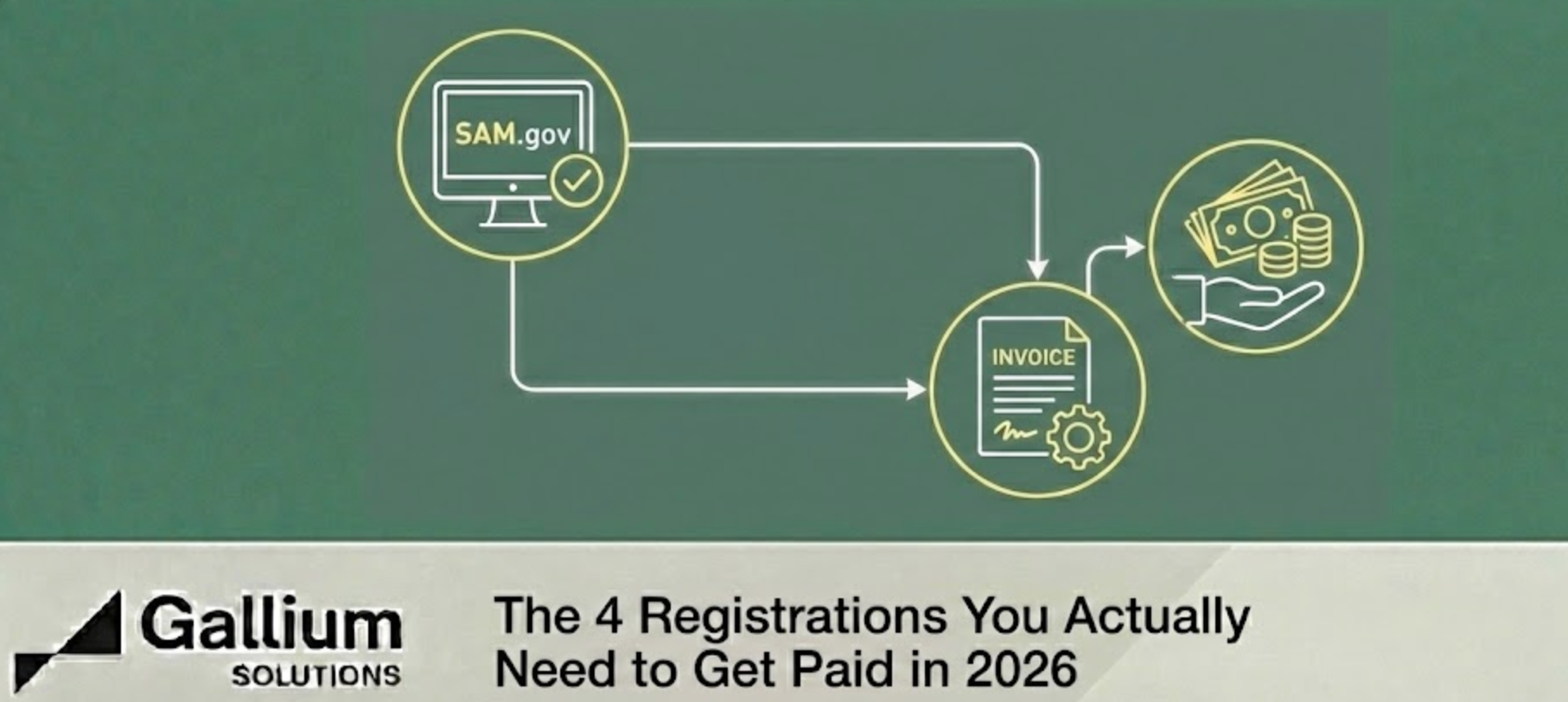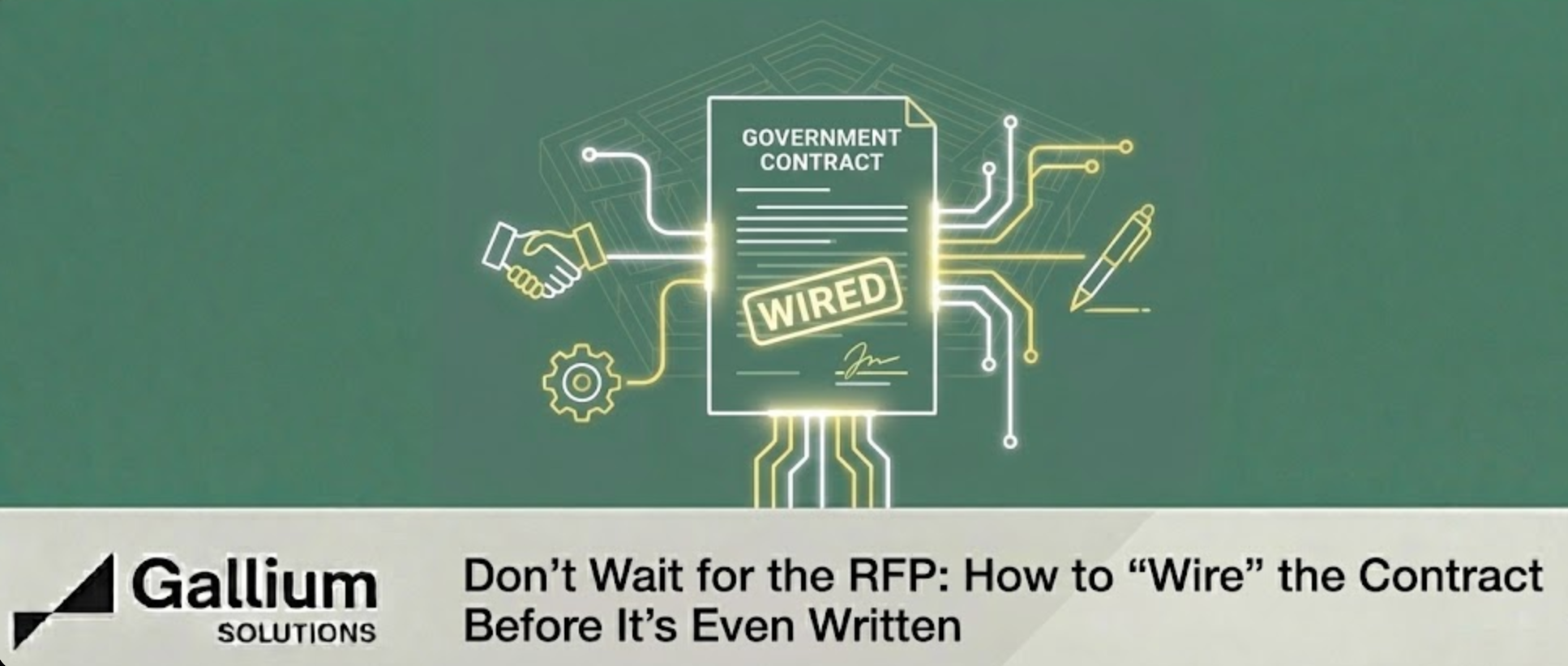Single Source vs Sole Source: What's the Difference and Why It Matters

You've submitted proposals for months without winning a contract.
Then you notice that agencies continue to award contracts to the same vendors without competition. You wonder: How do these companies secure contracts without bidding against anyone else?
The answer often lies in understanding single-source vs. sole-source procurement—two powerful pathways that can transform your government contracting success.
What Is Single Source Procurement?
Single-source procurement occurs when an agency chooses to contract with one vendor despite other qualified sources existing in the marketplace.
The government voluntarily restricts competition, typically because the selected vendor offers unique advantages like proven performance, specialized expertise, or strategic value that outweighs the benefits of competition.
Think of single-source procurement as the government's way of saying, "We know other companies could do this work, but we want to work with you specifically." Agencies use single-source contracts when they believe a particular vendor provides the best value, even though competitive bidding remains possible.
Your startup can position itself for single-source opportunities by developing specialized capabilities, building strong performance records, and creating strategic relationships with agencies that value your unique approach.
What Is Sole Source Procurement?
Sole source procurement happens when only one vendor can satisfy the agency's requirements. No other qualified sources exist in the marketplace, making competition impossible. The government must demonstrate that your company represents the only viable option for meeting their specific needs.
Sole source situations arise when you hold unique intellectual property, possess exclusive rights to certain technologies, or offer capabilities that no other vendor can replicate. These contracts require extensive justification because agencies must prove to oversight bodies that competition truly isn't feasible.
Unlike single-source contracts, where agencies choose to limit competition, sole-source contracts occur because meaningful competition doesn't exist.
Key Differences Between Single Source and Sole Source
Understanding the distinction between these procurement methods helps you identify opportunities and position your startup strategically.
Competition Availability
Single-source contracts could involve competition, but the agency chooses not to compete for the requirement. Multiple vendors possess the capability to perform the work. Sole-source contracts cannot involve competition because only one vendor can meet the requirements.
Justification Requirements
Single-source contracts require agencies to justify why they're avoiding competition despite other qualified vendors existing. The justification focuses on advantages like cost savings, schedule benefits, or strategic value. Sole source contracts require agencies to prove that no other vendors can satisfy the requirements, focusing on unique capabilities or exclusive rights.
Strategic Positioning
Single-source opportunities reward vendors who build strong relationships, demonstrate exceptional performance, and offer clear advantages over competitors. Sole source opportunities reward vendors who develop unique capabilities, secure exclusive rights, or operate in highly specialized markets.
When Agencies Use Single-Source Contracts
Agencies turn to single-source procurement in specific situations where competition doesn't serve their best interests. Understanding these scenarios helps you identify when to pursue single-source positioning.
Proven Performance Advantage: When your startup has delivered exceptional results on previous contracts, agencies may choose single-source procurement to ensure continued success. Strong past performance, especially on critical or high-visibility projects, creates powerful justification for avoiding competition.
Urgent Timeline Requirements: Emergencies or compressed schedules often drive single-source decisions. If your startup can deliver faster than competitors due to existing capabilities, established processes, or available resources, agencies may choose single-source procurement to meet critical deadlines.
Strategic Continuity Needs: Long-term projects requiring consistent approaches benefit from single-source procurement. If switching vendors would disrupt project continuity, compromise institutional knowledge, or require extensive transition periods, agencies often choose single-source contracts.
Cost Efficiency Arguments: When competition costs outweigh potential savings, agencies may opt for single-source procurement. If your pricing remains competitive and the agency expects minimal savings from competition, they might choose single-source procurement to reduce administrative burden.
When Agencies Use Sole Source Contracts
Sole source procurement requires more stringent justification because agencies must prove that competition isn't possible, not just disadvantageous.
- Unique Intellectual Property
If your startup owns patents, proprietary technologies, or exclusive licenses essential to the agency's requirements, you may qualify for sole-source contracts. The government cannot compete with requirements when only one vendor possesses the necessary intellectual property rights. - Specialized Expertise Requirements
Highly specialized technical knowledge or experience that no other vendors possess can justify sole-source procurement. If your team includes unique expertise that other companies cannot replicate quickly, agencies may use sole-source justification. - Emergency and National Security Situations
Crisis situations requiring immediate response sometimes necessitate sole-source contracts when normal procurement timelines would compromise mission success or public safety. - Follow-on Services for Proprietary Systems
Maintenance, upgrades, or modifications to proprietary systems often require sole-source procurement when only the original vendor can perform the work effectively.
Positioning Your Startup for Sole Source Opportunities
Sole source positioning requires developing truly unique capabilities that no other vendors can match. Develop proprietary technologies, processes, or methodologies that create legitimate sole-source justifications. File patents, trademarks, or copyrights that establish exclusive rights to capabilities the government needs.
Secure exclusive licensing agreements, distribution rights, or strategic partnerships that give you sole access to required technologies or capabilities.
Focus on highly specialized areas where few vendors operate. Deep expertise in narrow technical domains can create sole-source opportunities when agencies need specific capabilities.
Build capabilities that enable rapid response to crises. Emergency procurement often involves sole-source justification when normal competition timelines would compromise mission success. Your startup's ability to respond quickly to urgent requirements can create legitimate sole-source opportunities.
Common Misconceptions About Non-Competitive Contracts
Many government contracting newcomers misunderstand how single-source and sole-source procurement works.
Misconception: Personal Relationships Drive Awards
Reality: Agencies must document legitimate business justifications for non-competitive awards. Personal relationships cannot substitute for proper justification, and improper influence can result in contract protests and legal challenges.
Misconception: Small Businesses Cannot Win Non-Competitive Contracts
Reality: Small businesses often have advantages in single-source and sole-source situations. Specialized expertise, innovative approaches, and agile capabilities can create compelling justifications for non-competitive awards.
Misconception: Non-Competitive Contracts Avoid Oversight
Reality: Single-source and sole-source contracts receive additional scrutiny from oversight bodies. Agencies must provide detailed justifications that withstand review by auditors and protest mechanisms.
Conclusion
Single-source and sole-source procurement offer powerful pathways for your startup to secure government contracts without competing against dozens of other vendors. Success requires understanding the distinction between these approaches and positioning your capabilities strategically.
Single-source opportunities reward exceptional performance, specialized expertise, and strategic value that agencies recognize and want to retain. Sole source opportunities require unique capabilities that no other vendors can match, creating legitimate justifications for non-competitive procurement.
Your startup can build toward both types of opportunities by focusing on exceptional performance, developing specialized capabilities, and creating genuine value that agencies cannot easily find elsewhere.
Ready to position your startup for single-source and sole-source opportunities? Gallium Solutions helps growing companies develop the strategic capabilities and performance records that justify non-competitive government contracts.
Contact us now to discuss your approach to building a competitive advantage in federal markets.












